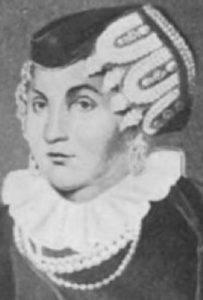Advisor to Moroccan Kings
 André Azoulay (b. 1941) was born in Morocco to a traditional Sephardic Jewish family. He moved to Paris to study and, after completing degrees in economics and international relations, got a job working for Paribas Bank. He stayed at the company for 22 years, rising to the rank of executive vice-president, overseeing the bank’s operations in the Middle East and North Africa. In 1991, Azoulay left Paribas to work for the Moroccan monarchy. He became senior advisor to King Hassan II, and was put in charge of reforming Morocco’s struggling economy. He ran a program of privatization and deregulation that significantly boosted Morocco’s financial position, and brought billions of dollars in new investments to the country. Azoulay is also an international ambassador for Morocco and works to improve relations between Morocco and other countries, including Israel. He has participated in Arab-Israeli peace talks, and played an important role in the Abraham Accords. Azoulay is president of the Foundation of Three Cultures and Three Religions to boost interfaith dialogue and build bridges between Jews, Muslims, and Christians. He sits on the boards of several non-profits and educational institutions. Azoulay has received many awards, including Morocco’s Commandeur dans l’Ordre du Trône, a Lifetime Achievement Award from the American Sephardi Federation and, most recently, an Israeli Presidential Medal of Honour. Israeli President Isaac Herzog said “Azoulay has made an extraordinary contribution to Moroccan Jewry, the Jewish world, and the State of Israel, in cultivating and preserving relations with Morocco over the years, preserving Jewish heritage in Morocco, and providing support and advice to Israeli leaders in their quest for peace in the Middle East. His vision of establishing friendly and peaceful relations between Israel and Morocco was realized in the Abraham Accords and his influence is evident in every area of these relations.” Azoulay continues to serve as senior advisor to Morocco’s King Mohammed VI today, and plays an active role in his hometown of Essaouira, where he works to preserve and promote its history and culture.
André Azoulay (b. 1941) was born in Morocco to a traditional Sephardic Jewish family. He moved to Paris to study and, after completing degrees in economics and international relations, got a job working for Paribas Bank. He stayed at the company for 22 years, rising to the rank of executive vice-president, overseeing the bank’s operations in the Middle East and North Africa. In 1991, Azoulay left Paribas to work for the Moroccan monarchy. He became senior advisor to King Hassan II, and was put in charge of reforming Morocco’s struggling economy. He ran a program of privatization and deregulation that significantly boosted Morocco’s financial position, and brought billions of dollars in new investments to the country. Azoulay is also an international ambassador for Morocco and works to improve relations between Morocco and other countries, including Israel. He has participated in Arab-Israeli peace talks, and played an important role in the Abraham Accords. Azoulay is president of the Foundation of Three Cultures and Three Religions to boost interfaith dialogue and build bridges between Jews, Muslims, and Christians. He sits on the boards of several non-profits and educational institutions. Azoulay has received many awards, including Morocco’s Commandeur dans l’Ordre du Trône, a Lifetime Achievement Award from the American Sephardi Federation and, most recently, an Israeli Presidential Medal of Honour. Israeli President Isaac Herzog said “Azoulay has made an extraordinary contribution to Moroccan Jewry, the Jewish world, and the State of Israel, in cultivating and preserving relations with Morocco over the years, preserving Jewish heritage in Morocco, and providing support and advice to Israeli leaders in their quest for peace in the Middle East. His vision of establishing friendly and peaceful relations between Israel and Morocco was realized in the Abraham Accords and his influence is evident in every area of these relations.” Azoulay continues to serve as senior advisor to Morocco’s King Mohammed VI today, and plays an active role in his hometown of Essaouira, where he works to preserve and promote its history and culture.
How Sephardic Jews Shaped the World
Words of the Week
The Jewish people is permeated by an ancient and historically confirmed belief that nations who subject it to torture and persecution sooner or later feel the full measure of God’s punishing wrath. At the same time, God Almighty sends his blessing to those peoples who stand by the Jews in their time of peril.
– Rabbi Meir Bar-Ilan


